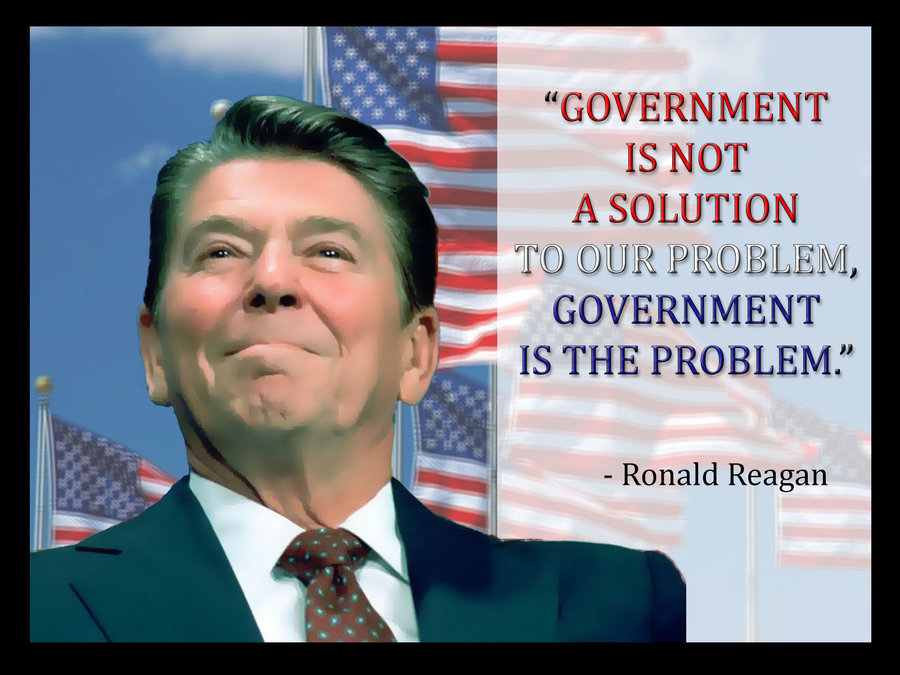PART 2 of 3, PART 1 can be found here.
Reagan had James Watt at Interior, who previously led a conservative think tank in Colorado that wanted to undo a number of environmental rules, and Trump has Scott Pruitt, destined for EPA, and charter and religious schools advocate Betsy Devos as Education Secretary.
Putting pro-business anti-regulation people in charge of certain agencies did create some scandal. A notable one occurred in 1982-83 inside the Environmental Protection Agency where a Reagan appointee, Anne Gorsuch, was held in contempt of Congress for refusing to release documents about whether EPA was not enforcing the new Superfund law. One EPA political appointee went to jail for lying to Congress and Gorsuch, the mother of Supreme Court nominee Neil Gorsuch, was forced to resign.
In today’s piece, we will focus on the analogy between the Reagan and Trump efforts on domestic policy:
SOCIAL ISSUES: Reagan’s embrace of the Moral Majority agenda, which opposed abortion and homosexuality, was a prime cause of Leftist outrage, especially in Hollywood and on college campuses.
In recent weeks, we have seen Hollywood and the music industry lash back at Trump at any chance – like the Grammy Awards last week.
But the liberal establishment was fearful of Reagan and the Moral Majority/Phyllis Schalfly/Pat Buchanan influence. In reaction, lefitist TV producer Norman Lear formed “People for the American Way,” and in March 1982 rounded up a number of Hollywood celebrities to perform in a two-hour CBS show called, “I Love Liberty.” Its attempt was to showcase the nation’s diversity, which Lear felt was under assault. He had actors playing gays, the disabled and of course minorities, and the implication was , ‘Hey, these are people, too, and Reagan is ignoring them or sidelining them.’ It was histrionic at best. Neither this nor the protests did anything to influence the 1982 midterm elections. The GOP maintained Senate control, though it lost seats in the House.
BUDGET AND TAXES: Like Trump, Reagan’s policies were protested around the country. In I covered one such rally in Jersey City’s Liberty State Park in April 1981, shortly after Reagan survived an assassination attempt.
In my article, liberal New Jersey Gov Brendan Byrne denounced the budget cuts and military buildup. He told the rally:
The Soviets are men like us, with children and hopes for a better ,more secure future. It is time we recognize the soviets are not 10 feet tall, though it is sometimes convenient for the Pentagon to paint them as such.”
Byrne’s statement reflected a common Carter-era Democratic counter to Reagan at the time and that any cut in social programs was going to be disastrous.
I covered a May 1981 forum where Reagan’s cuts in legal aid were denounced. Reagan was quoted saying legal aid for civil suits amounted to paying “a bunch of ambulance chasers doing their own thing at the expense of the poor.” Sounds very Trumpian, no? But the vitriol by the legal services people were just as polarizing. One said, “President Johnson’s war on poverty is becoming President Reagan’s war against poor people.” By the way, Legal Aid is still in existence.
DEREGULATION: Trump’s deregulation moves have yet to create consternation, except with the pending nomination of Scott Pruitt to head the EPA. But they will.
Under Reagan, deregulation had its moments, such as the EPA scandal, or when the USDA announced that ketchup would be considered a “vegetable” under school lunch guidelines.
But overall, deregulation had amazing benefits. Under Attorney General William French Smith, the Justice department settled with AT&T, leading the monopoly to be divided into seven regional holding companies. The selling of spectrum for cell phones created whole new companies like Cellular One (which later became Cingular Wireless and then was absorbed into AT&T).
Competition also ensued in satellite communications under Reagan’s “separate systems” policy, which was sort of like the AT&T breakup for wireless communications. It is very possible that had there not been deregulation of AT&T and other monopolies like Comcast cellular service and satellite TV never would have occurred when they did.
I cover the Food & Drug Administration under Reagan and a scandal involving generic drug payola. It led to a number of convictions and changes in the law, but overall generic drug deregulation under a 1984 Reagan backed law created whole new pharmaceutical companies such as Mylan, Barr and Teva. Numerous biotechnology companies began due to Reagan-era streamlining of the biologics approval process and better patent protections, notably, Amgen and Genentech.
GAY AND LGBT ISSUES: Although Trump has said nothing negative about gays and is generally positive about LGBT issues, the liberal intelligentsia chose to demonize him due to the DeVos appointment and the fact conservative Evangelical Christian Mike Pence is his vice president.
But Reagan was accused of being anti-gay, too, particularly his administration’s handling of the AIDS crisis. Health agencies were accused of dragging their feet and essentially allowing gays to die, but his administration resisted efforts by conservatives to quarantine HIV-positive people. But despite having a Surgeon General, C. Everett Koop, who became popular due to his stress on condom use in sex, and his FDA approved the first AIDS drug, AZT, in less than 100 days, long after leaving office he was accused of letting gays die- notably a Bennetton commercial in the 1990s.
Stay tuned for Part 3 tomorrow: Reagan and Trump, excoriated by the Left, but successful in the outcome

